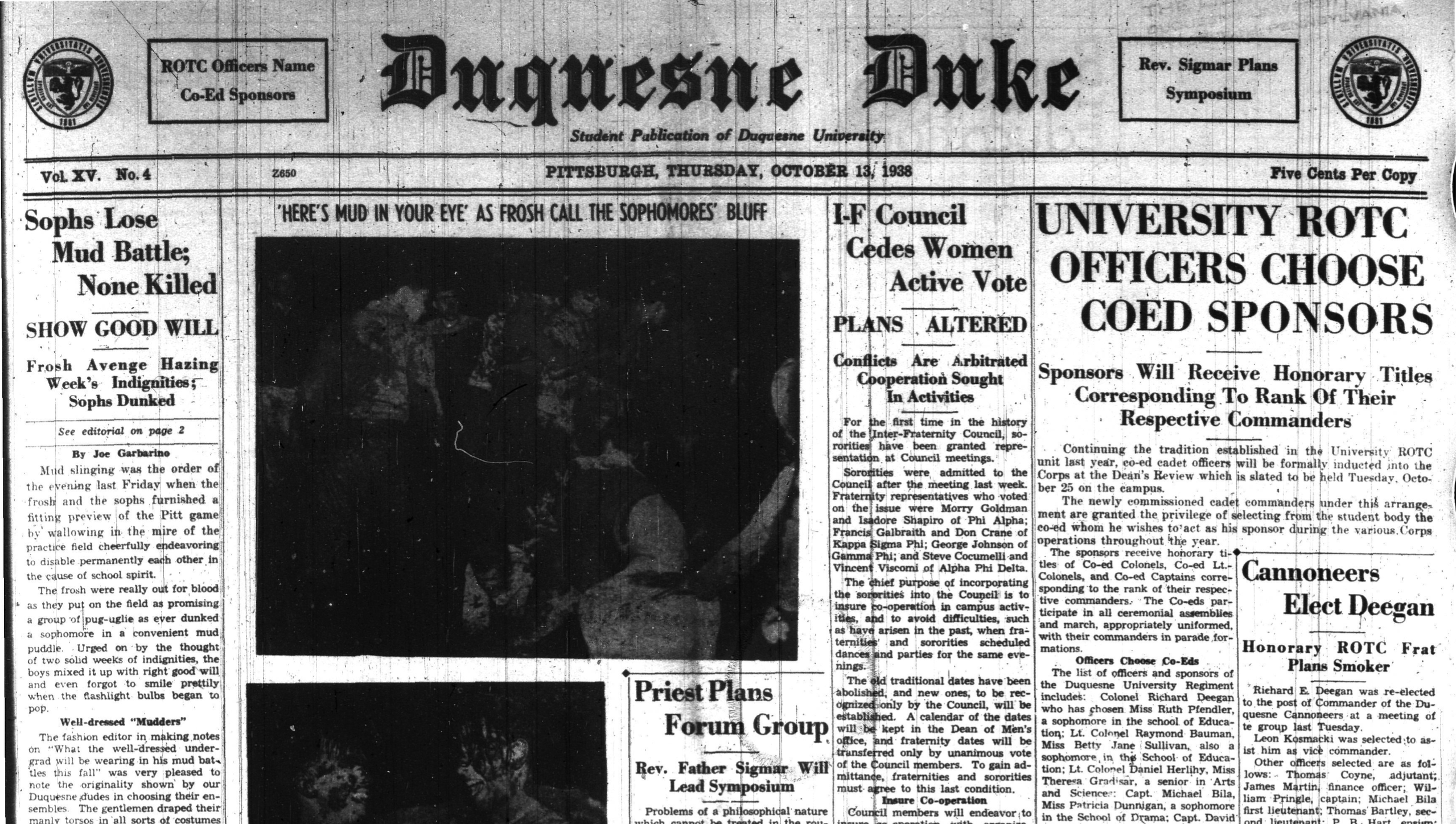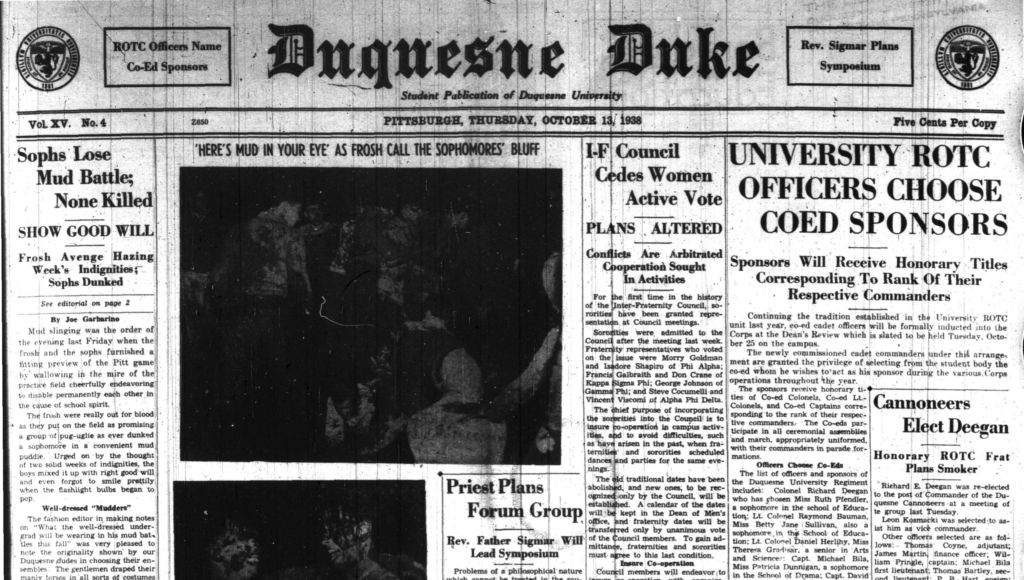

By Nina Saluga | Staff Writer
Since 1925, The Duquesne Duke has been serving the Duquesne community by reporting on the issues that matter. Thanks to the Gumberg Library Digital Collections, our 90-plus year history is always just a few clicks away. With that in mind, here is the second of many dips back into The Duke’s archives.
The week of Thursday, October 13, 1938 was a great week to be a female Greek at Duquesne University.
The Inter-Fraternity Council finally granted sororities representation at Council meetings. For the first time in Duquesne history, female Greeks would be admitted to the Council and given a voice in Inter-Fraternal matters.
Then-members of Phi Alpha, Kappa Sigma Phi, Gamma Phi and Alpha Phi Delta were responsible for making the decision possible. The sororities admitted to the Council at the time may sound familiar, too. Among them were Sigma Phi Delts, Theta Sigma Delta, Sigma Lambda Phi and Alpha Phi Omicron.
Membership dues to the Council costed a whopping one dollar, and meetings were held in the familiar Canevin Hall.
The primary purpose of incorporating female Greeks into the Council was to abolish previous conflicts like scheduling events on the same days, and to ensure the cooperation of Greek life across campus.
But, you know, the equality facet is nice, too.
***
Actually, as it turns out, it was a great week to be a female Duke in general at Duquesne in October of 1938.
Gender issues were a topic of white hot debate that week, as another front page headline boasted that university ROTC officers had chosen coed sponsors.
Just the year prior, the university started the tradition of formally inducting coed cadets into the Corps at the Dean’s Review. Cadet commanders would then select from a coed candidate in the student body to act as a sponsor for the duration of operations throughout the year.
Female students from the schools of education, music, arts, sciences and nursing were among the candidate pool of coeds to choose from.
Girl power runs rampant all through this issue of The Duke, but then again October would become breast cancer awareness month, after all.
***
Clearly October 13, 1938 was not midterms week for Duquesne students at the time.
An extensive list of events for the week included a pep rally, a football game and a Theta Sigma Delta skating party at the Diamond Rink.
Gumberg Library also offered a class on using the library during the last two weeks in 1938. The class taught 400 incoming students the usage of Dewey Decimal Classification and card catalogs (what an archaic thought!), and featured talks on using library resources.
Surprisingly enough, Gumberg Library was only open until 4:30 p.m. on Saturdays in 1938.
It’s hard to imagine pulling an all-nighter for that exam on Monday when Gumberg closes before dinner is even served at Towers.
***
Another article complains of Duquesne students being unable to act respectfully when accepting speakers into the “gym”. Common courtesy appeared to be lacking in 1938, as another article pleads with the Duquesne student body to show respect and attention to speakers too.
Good listening skills have been something Duquesne has struggled to instill within restless college students since 1938.
***
The issue features several interesting advertisements for familiar Pittsburgh faces such as the Mellon National Bank, J.R. Welding Co. and Benny Rubin’s Cigar Store (opposite the Stanley Theater).
***
Members of Greek life are not unfamiliar with the Facebook posts that plague their given organization’s feed. These announcements and postings come as no surprise and are standard protocol for members. They oftentimes feature event updates, mandatory obligations within the organization and other relevant events.
Now imagine having to purchase a copy of The Duke (for five whole cents at that) every time you needed to know what was going on within your organization. That’s pretty much how 1938 operated.
The Duke then featured a “Top Hat” section that served as a bulletin board of sorts for Greek organizations to spread the word about events within and outside of their memberships.
Just when you thought we as college students wouldn’t be able to function without social media, The Duke throws it back to remind you that print may be primitive but it is not ineffective.


